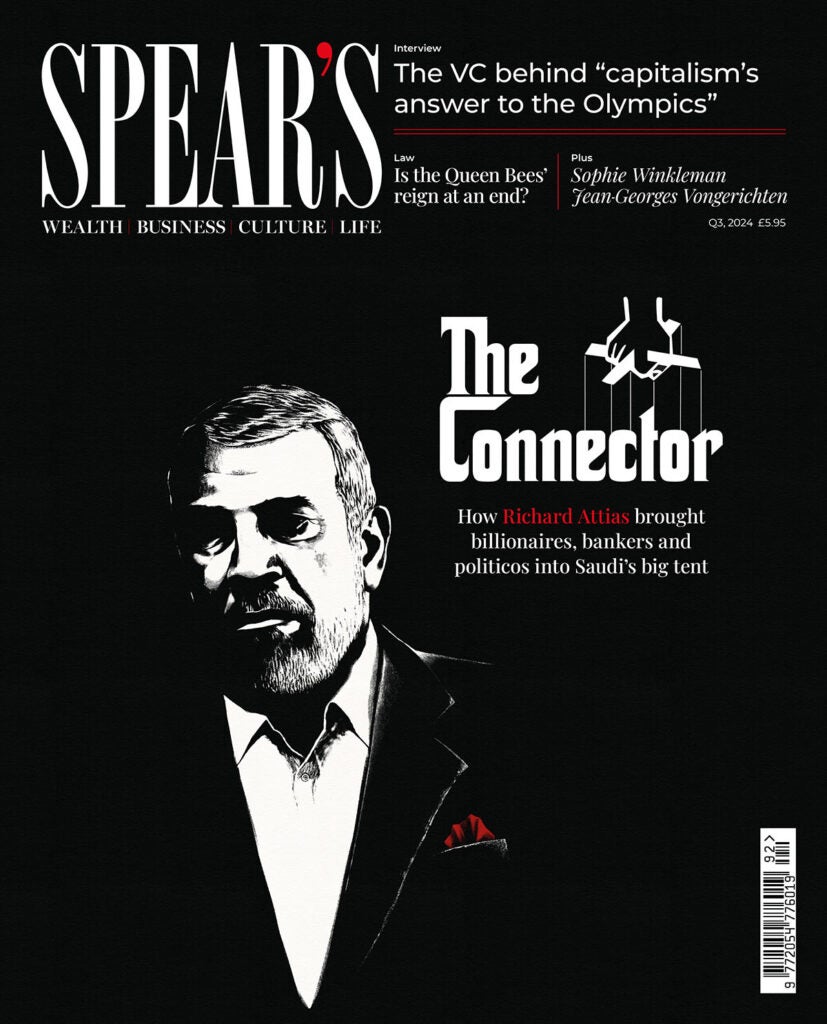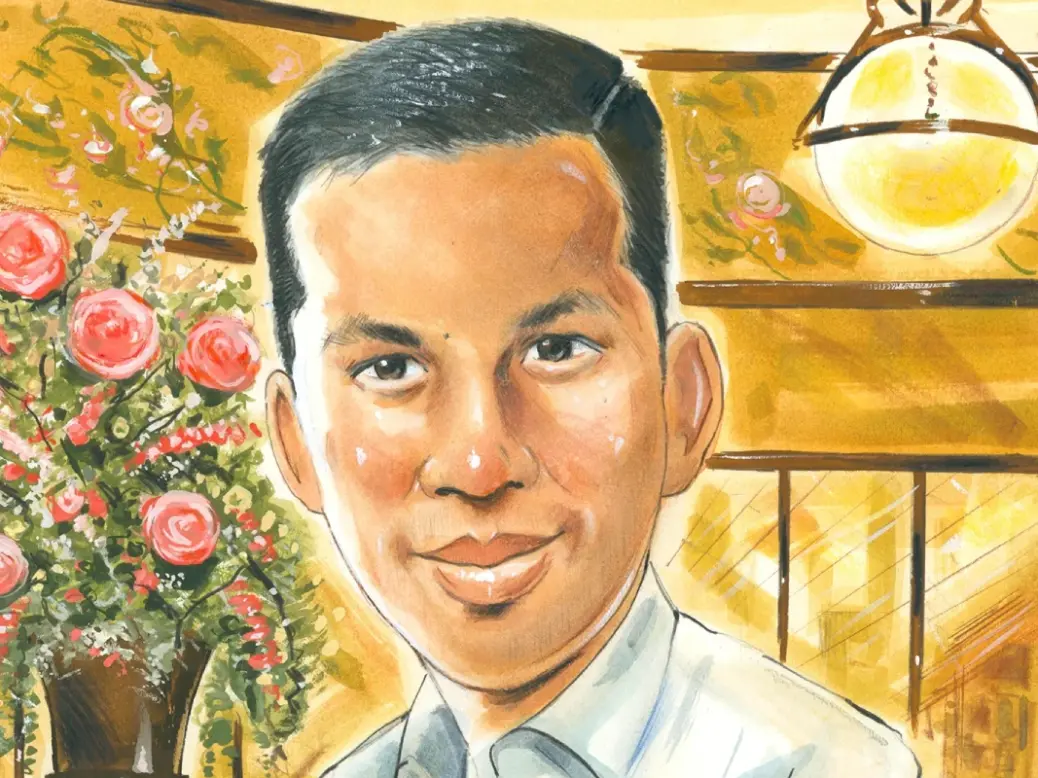
The first time many people heard of the Enhanced Games – or ‘doped Olympics’, as they have been dubbed – was in February when Australian James Magnussen announced his intention to ‘juice to the gills’ in a bid to win $1 million and become the fastest swimmer in history at the proposed event, more than a decade after he won a silver medal at the 2012 London Olympics.
Further column inches were generated a couple of weeks later, when Seb Coe succinctly described the idea for a sports event without drug testing as ‘bollocks’. Then, in March, Joe Biden’s White House expressed its ‘deep concern’ about the project and the organisation behind it, which happens to be backed by Peter Thiel, the tech billionaire and one-time Trump supporter. But this backstory doesn’t exactly tally with the first moments of my meeting with Enhanced Games founder Aron D’Souza, who has suggested lunch at the Ivy Kensington Brasserie on Kensington High Street.
[See also: Why this generation of billionaire tech barons is a danger to the planet]
When he arrives – wearing a crisp white shirt, chinos and a Patek Philippe Aquanaut on a tangerine-coloured strap – D’Souza explains that this is practically his work canteen. The office the Enhanced Games team uses as its headquarters is upstairs and he lives nearby. But he won’t say precisely where: ‘I never tell journalists where I live.’
Before we start the interview proper he puts his iPhone down on the table to record our conversation. Perhaps it’s understandable that D’Souza takes precautions when it comes to dealing with the press. He describes himself as a VC, but his big break came from a battle against the fourth estate.
Bringing down Gawker
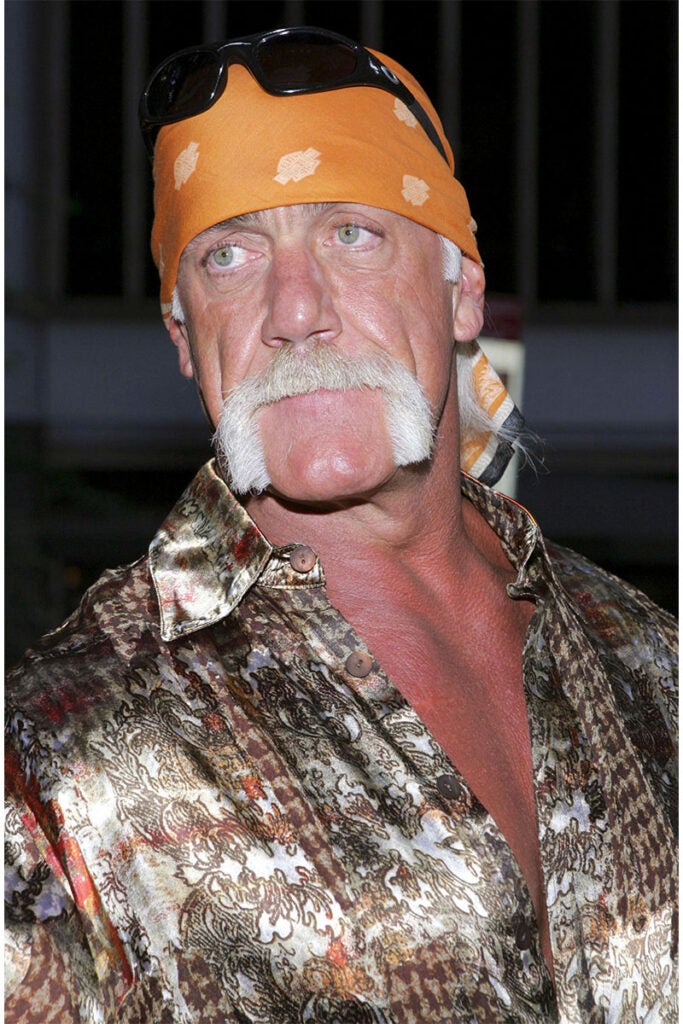
D’Souza grew up in Melbourne, in a family of Chinese heritage. In 2009, he had moved to Oxford to study law and, as a 24-year-old undergraduate, was connected by a mutual friend to Thiel, who was visiting the university.
[See also: The ‘masters of the universe’ are back in business]
The pair went for a walk, which was when D’Souza asked Thiel what would turn out to be a consequential question: ‘What’s the biggest problem you face. And how can I help solve it?’ Thiel told D’Souza about his troubles with Gawker, the gossipy online news site, which had outed him as gay without his permission. The billionaire told him he didn’t want to sue the company for invasion of privacy for fear of exacerbating the problem. So D’Souza made a suggestion: ‘Why don’t you find someone [else] who wants to sue them and have a proxy war?’ He added: ‘Let me write you a memo on how to do it.’
Two weeks later, Thiel was in Berlin. ‘I flew out to meet him and walked him through the plan,’ D’Souza says. ‘He was like: “I love it. How much and how long will it take?” I said five years and ten million dollars. He said: “Great. Where do I wire the money?”
[See also: Praxis and the promise of a tech bro utopia]
To cut a long and well known story short, it worked. Thiel backed Terry Gene Bollea, better known as the WWF wrestler Hulk Hogan, to sue Gawker following its publication of a sex tape featuring Hogan and Heather Clem, the wife of his friend, a radio presenter known as Bubba the Love Sponge. Damages of $140 million were awarded to Bollea; three months later, Gawker filed for bankruptcy protection.
We have been discussing the Enhanced Games for a little while by the time the waitress comes over to take our order. ‘I could talk endlessly about it,’ says D’Souza, before ordering the lobster linguine, while I choose the blackened cod fillet and a side of greens.
Birth of the Enhanced Games
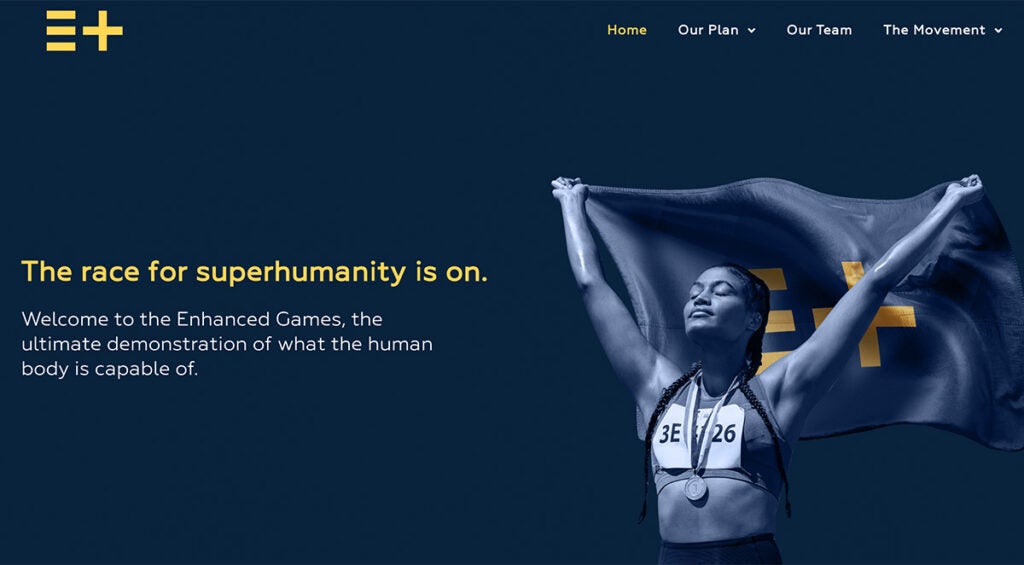
Each year, around Christmas, D’Souza rents a house, usually by the beach, and writes a business plan for a venture he’d like to pursue. In 2022 it was the Enhanced Games. The idea, he tells me now, was to ‘reinvent the Olympics for a third time’. The ancient Greeks created it. ‘In 1896 it was reinvented by Pierre de Coubertin for his era – the era of the steam train, of patriotism, of nationalism, of amateur athletics.’ So what if you were to do it again? The athletes would be paid, says D’Souza. It would be goodbye to huge government-funded projects that vastly exceed their budgets, and hello to efficient use of existing facilities by a private, for-profit company. And, whereas ‘legacy’ sporting organisations such as the NFL are orientated around matches watched by live crowds, this newly conceived version of the Olympics would be designed for an age in which the vast majority of viewers are online.
[See also: Super-rich are giving away more of their money than ever before]
D’Souza talks in a measured way, in an accent that owes more to his time in America than it does to his upbringing in Australia. But when he speaks about the International Olympic Committee (IOC), the International Athletics Association (IAAF) or the World Anti-Doping Agency (Wada), a note of disdain creeps into his voice. The Olympics is not ‘higher, faster or stronger,’ he says sharply, making reference to its Latin motto, ‘Citius, Altius, Fortius’. Even some major world records such as the mile or 1,500m have not budged in around 25 years. And the IOC? ‘They’re not interested in fairness.’
He mentions a study published in 2018 which found that 44 per cent of athletes had used banned substances in the past year. And the case of 23 Chinese athletes who tested positive for banned substances, but faced no sanctions. Then he pulls out a ring binder adorned with colourful tags and puts it on the table. It contains a chart that shows the level of harm caused by various substances; alcohol ranks far above steroids. When I suggest this may partly be because many more people consume alcohol than steroids, he doesn’t seem to notice.
Rise of humanity 2.0
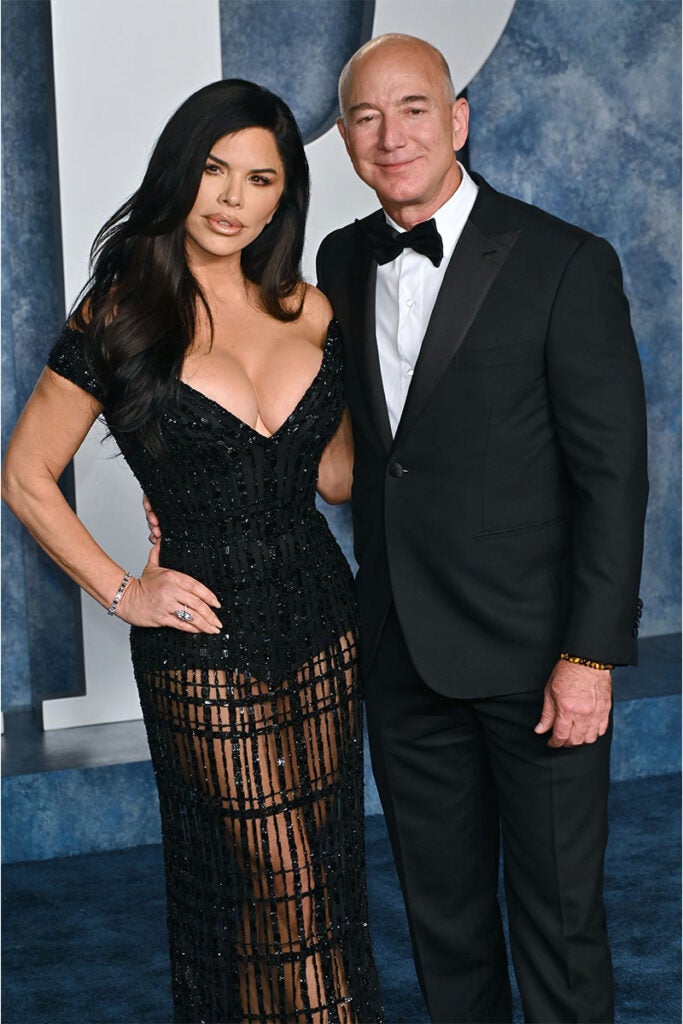
With the backing of investors such as Thiel and venture capitalist Christian Angermayer – both known advocates of transhumanism – it’s clear that the Enhanced Games was never going to be just a sporting spectacle. But I’m surprised at just how upfront D’Souza is about his ambitions for the organisation. ‘Every single member of our team has a plastic card and that says what our mission is,’ he explains, taking his out to show me. Then he reads from the card, deadpan: ‘“Our mission is to safely transition mankind to a new super-humanity.” It’s all about getting humanity to a place where our biology no longer limits us. Well, doesn’t everyone want that? Don’t we all want to be superheroes? I wanna be a human 2.0.’
‘Billionaires, CEOs and pro athletes’ are already on their way to achieving this, D’Souza says. ‘They found this secret. You only need to look at Jeff Bezos, Larry Ellison, Peter Thiel,’ he says, name-checking tech titans some suspect of having used legal enhancements.
‘They look amazing.’ He adds that it’s important to distinguish between illegal drugs, and substances that are banned for use by professional athletes by Wada. The Enhanced Games has been clear that anything taken by its athletes would have to be FDA-approved, and that all athletes would be monitored by medical professionals. At present most human enhancement is pharmacological – doping with hormones or substances such as erythropoietin (EPO) – but there is scope for much more. Are we talking about things like Elon Musk’s Neuralink implant, which allows people to control computers or other devices with their brain? And could we one day see athletes with, say, carbon-fibre bones? ‘Well, we replace our joints already. Why not?’ It’s all on the table, says D’Souza, pointing out that prostheses have been used in the paralympics for years. ‘Right now it sounds like science fiction. But if you surround yourself with billionaires and CEOs, they get it.’
‘Look at the rise of artificial intelligence, computational biology and quantum computing. The speed of progress is going to be radical. It will enable humanity to do things that hitherto, we haven’t comprehended.’
So, how far could this go? ‘I would like, within my lifetime, to see an athlete who is 65 years old beat a natural world record,’ says D’Souza, who is 39. A three-minute mile run by someone in their forties, fifties and even sixties could be possible, he adds. (The world record is currently three minutes, 43 seconds.)
A post-Paris reality?
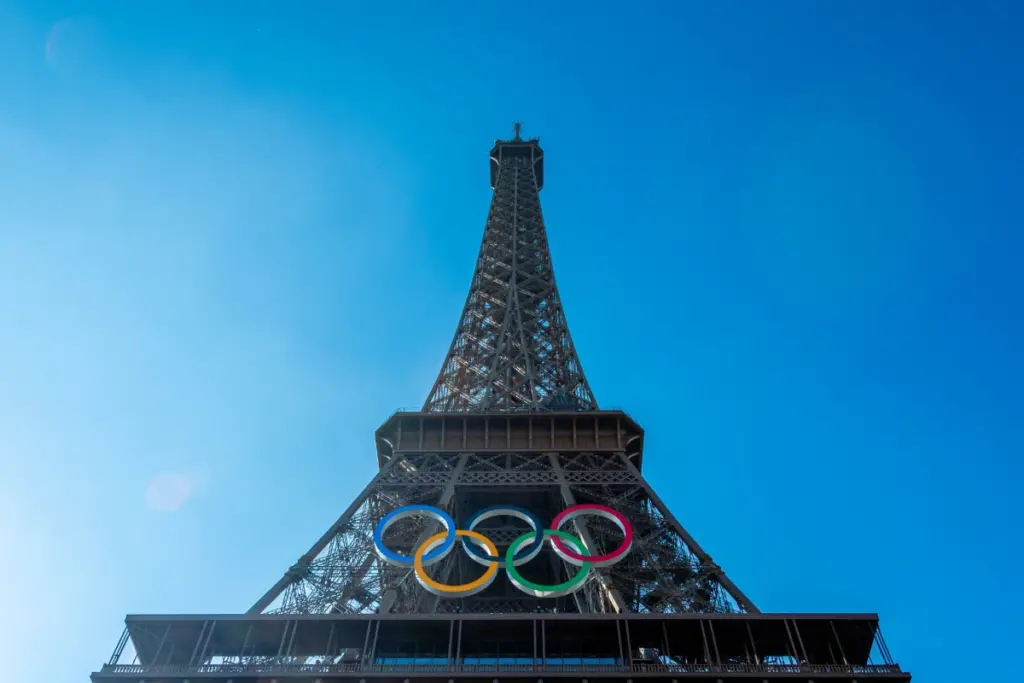
As our main courses are cleared, I order a coffee, while D’Souza opts for a mint tea. Our discussion turns to the mechanics of the business, which he hopes will provide anti-ageing treatments to consumers. ‘We will gather extraordinary data from our athletes, then build products that can be marketed at the Enhanced Games.’ It is, D’Souza believes, ‘the biggest opportunity I’ve ever seen’, and it has already been backed by ‘some of the investors with the deepest pockets in the world’.
However, there has been no announcement about when the Enhanced Games will actually take place.
The organisation had previously said that in March of this year it would reveal more athletes who would join the Australian swimmer Magnussen at its inaugural event, which could take place next year. But this didn’t happen.
When I ask him about this, D’Souza says the organisation invited online applications from would-be enhanced athletes and received 1,500. Whereas around 10,500 athletes are expected to take part in the Paris Olympics, the Enhanced Games would need far fewer, as it would focus initially just on track and field, swimming, gymnastics, combat sports and weightlifting.
‘We’re very happy with progress,’ D’Souza says, adding that he understands why athletes would be reluctant to put their name to his event in the buildup to the Olympics. ‘They want to go and have a chance at Paris. If they get a silver medal – or a doping violation – then they might consider it.’
This feature first appeared in Issue 92 of Spear’s Magazine. Click here to subscribe.
